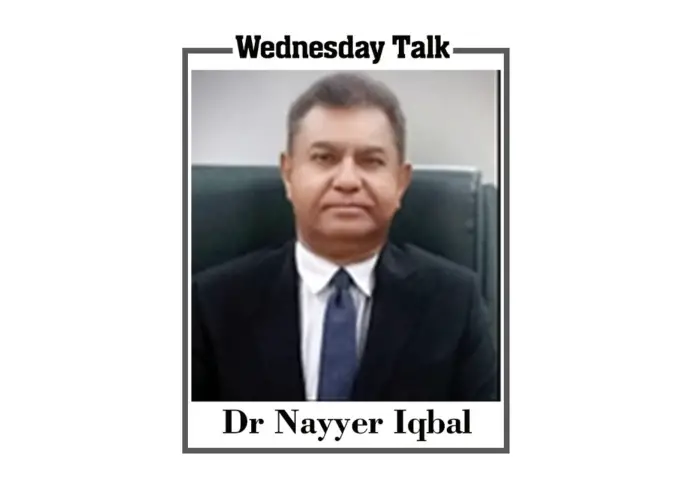Ben Hubbard was correct in pointing out that Saudi Arabia ‘had been known for two things: Islam and oil, however, the illustrious author overlooked a newly-emerged phenomenon i.e. MBS, which is actually the abbreviation of his complete name: Muhammad bin Salman. The Kingdom of Saudi Arabia (KSA) has never been an obscure state and it has held a unique clout among the 1.8 billion Muslims around the globe, since ever, being the cradle of Islam and having Mecca and Medina in it. Simultaneously, it has been important for the non-Muslim world during the last hundred years for its huge oil reserves. In the recent past, the distinctive personality and progressive policies of MBS have attracted the attention of various governments and a large number of politico-economic observers. Virtually, MBS remains in the news all the time for one reason or the other.
The position of MBS was not like that till the accession of his father Salman bin Abdul Aziz in April 2015. He appeared on the horizon of Saudi politics from obscurity when the new king assigned him the most important portfolios of defence, finance, oil and religious affairs. Soon, he established himself soundly in the power structure of the kingdom being a ‘workaholic’ and ‘overflowed with energy. Particularly, he impressed all with two of his initiatives, planned and executed in a short span of time. First: he restructured the whole government by abolishing a large number of non-performing bodies and limited the work to two supreme forums for economic development and security. Gradually, he took over control of both the august bodies thus bringing the whole of government under him. Second: he effectively checked ‘inefficient spending’ of $80 to $100 billion, almost one-quarter of the kingdom’s annual budget, and saved KSA from impending insolvency due to nose-diving oil prices in the world markets. He also got developed ‘Key Performance Indicators (KPIs) to activate the staled ministries. He addressed, as well, the looming threat of terrorism by getting executed 47 Al-Qaida suspects in one go on 2 January 2016. Moreover, he took meaningful measures to break the inertia of the Saudi military and make it an efficient fighting force. Through these measures, the young prince demonstrated that he meant business at a very fast pace: something unusual in the otherwise slow-moving Saudi system.
From 2015 to 17, de-jure, MBS was the Deputy Crown Prince and a minister, but de facto he was the real potentate. All the governmental activity revolved around his person as the King had delegated almost all the powers to him and the Crown Prince Muhammad bin Nayef (MBN) had been made a ‘lame-duck’. In this background, MBS planned to enhance his formal position i.e. nomination as Crown Prince. The support of two quarters was crucially important in this connection: the Saudi power apparatus and the American establishment. The management of local factors was not an issue for MBS whereas the consent of Washington was to be hammered out. To overcome this challenge, Muhammad bin Zayed Al Nahyan offered to use his influence. He approached the US power brokers and pleaded the MBS case mainly on two arguments: he believes in liberal Islam and has the requisite potential to modernize the KSA. As these selling points were substantiated by the prince’s liberal religious ideology and performance as an effective reformer, the wire-pullers of the American system were convinced. To increase his acceptability, he himself went on a tour to the US and ‘charmed leaders in the White House and on Wall Street, in Silicon Valley and Hollywood’. Donald Trump’s son-in-law Jared Kushner also played a behind-the-curtain role in the ongoing campaign. Eventually, MBN was deposed and MBS was designated the Crown Prince thus making him virtually the ruler of his country. Still, if any doubt was left concerning his unquestionable position, it was removed by the royal decree dated 27 September 2022 appointing MBS the Prime Minister of the kingdom. Now, he is the Chief executive of the state and the King in Waiting. Some western analysts have termed his political progress as a ‘Shakespearean rise’.
During his 6-year-long ascendency, MBS has introduced reforms in all spheres of national life. Mainly, the focus has been on the transformation of the kingdom from an oil-based to a diversified economy through tourism and foreign-investment. An International Investment Conference, termed by media as ‘Davos in the Desert’ has been made an annual feature to show off to the world how conducive KSA is for foreign business. His ‘Vision-2030’ presented a comprehensive program to ‘integrate’ kingdom’s ‘economy into global financial markets as both a destination and a source of investment’. Actually, it is a plan to ensure KSA’s economic survival and growth after the decline in oil’s importance and value. MBS has also embarked upon developing the world’s first ‘cognitive city’ equipped with the latest digital technology, powered by solar energy and staffed through robots, costing $500 billion in the north-eastern province of Tabuk. He does not visualize it as an economic development project but a ‘civilizational leap for humanity’.
MBS is struggling to transform the KSA’s socio-religious outlook as well. He reflects Islam as a moderate and balanced religion and regarding himself proclaims that he is not ‘committed blindly’ to the teachings of Muhammad ibn Abd-al- Wahab or to any particular school of thought. Reduction in the influence of the clerical elite, restriction on Religious police’s powers, order to lower the volume of mosque’s speakers by 1/3, and permission of pilgrimage to women without being accompanied by a male are few indications of the new approach. In the socio-cultural sphere; permitting women to drive, lifting the age-old ban on cinemas, allowing females to travel alone, softening gender segregation rules and relaxing censor procedures for incoming material are important changes. As 2/3 population of KSA is below 35 therefore MBS has a strong support base for his reforms. Moreover, the Saudi youth can more comfortably relate with a ruler in his mid-thirties than with previous above-80 monarchs.
By and large MBS policies are endorsed worldwide, however, there are controversial areas as well. Jamal Khashoggi’s assassination; merciless military actions in Yemen; prolonged boycott of Qatar and certain other foreign policy-related issues became contentious. Internally, he is considered whimsical; not believing in any type of consultation. However, he himself believes that since he was working for the benefit of KSA, there needs to be no restriction on his power. Under the same notion, he does not feel any hesitation in crushing a real or perceived threat to his authority. His advocates portray him as a ‘long-awaited game-changer in the region’ and not as a ‘brutal dictator’ branded by some. Leaving aside his governance style; a serious contradiction is undeniable: on the one side he is opening up the kingdom religiously, economically, culturally and socially however no advancement in the political sphere seems to be on the cards. This anomaly reminds me of pre-revolution Iran where the last king Muhammad Reza Shah Pahlavi could not create a balance between socioeconomic progress and political liberalization. How MBS deals with this discrepancy? Only time will tell. Moreover, his indifference towards the US demand for an increase in oil production has raised many eyebrows. Further, MBS’s indication to join BRICS and Russia’s warm reaction has displeased the movers and shakers of US diplomacy. To be capricious in internal matters is affordable to a certain extent but in external affairs, one is bound to be extra careful.







